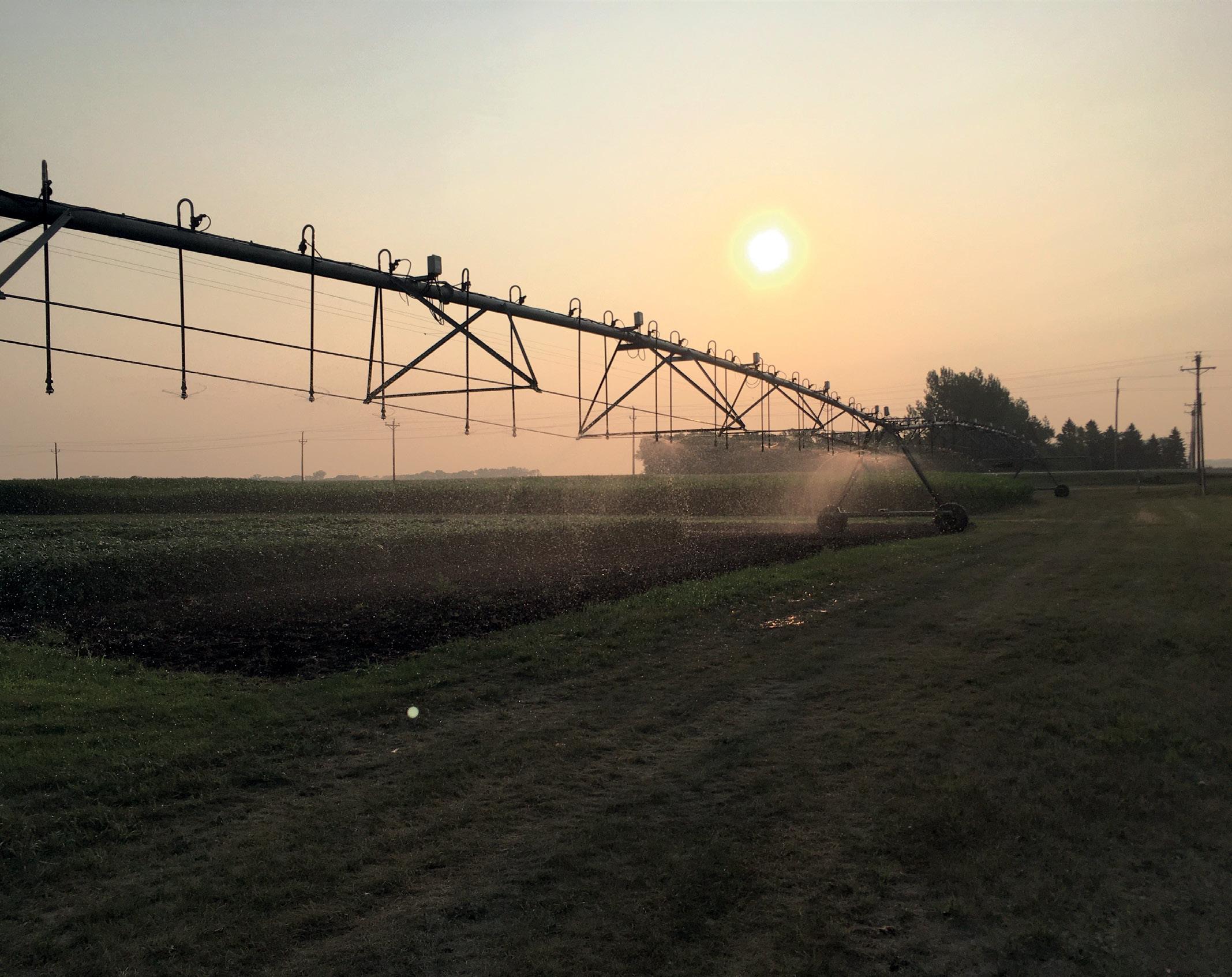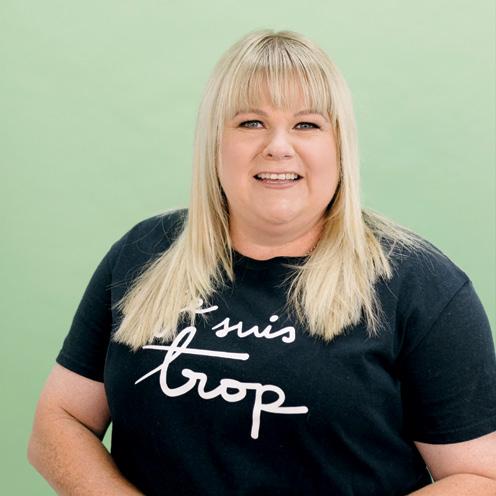
6 minute read
FROM THE CHIEF EXECUTIVE
Vanessa Winning Chief Executive IrrigationNZ
Providing certainty to keep improving
Advertisement
This autumn has been another season of challenges in New Zealand. We celebrate achievements in agriculture with expected export revenue of $52 billion, at the same time as we see several of our rules change, and the world moving towards some pretty big sustainability goals that seem almost unachievable.
When trade wins are still coming to fruition, most recently the British free trade agreement and the more limited EU trade agreement, and our products are still at some record highs, there is much to celebrate. We are not alone with the demands our public is putting on us as farmers. In some cases we’re in a better position than other countries because we’ve been on this journey for many years already. We’re ahead in the way we produce our food – sustainably, profitably without subsidies, and with the highest animal welfare standards. There is more to come, and we have a part to play;as a large part of society, we need to be mindful of the impact we have. Having the headroom to work through the international demands relating to carbon, local animal welfare, and environmental impact is key to our successful navigation of these expectations. We require support to change, the financial bandwidth to make changes, and certainty that in making changes we will still have a social licence/consent to operate, and a return from the investment needed.
As a country, we need to work more on these three things. When we speak with farmers and growers wanting to do a better job they state that the biggest challenges are; knowing what to do, being able to do what needs done, and knowing that the required investment is going to achieve a return in the future. They often seek longer time frames around permitted activity and seemingly everchanging rules.
Water availability and security is one of the biggest issues we are hearing about. This impacts farmers’ ability to change land use, to develop more mixed farming options, and grow crops and trees alongside and complementary to animal agriculture. The myths around irrigation perpetuate. We’re very often having to point out that 90 percent of fruit and vegetables need irrigation, and all do at certain points in the growing cycle, whereas less than 29 percent of our animal agriculture does. Water gives us choices. We get enough of it – as we’re experiencing in the north as I write this – but we don’t capture and store it adequately.
Water security takes significant investment and impacts not just the farmer/grower who is investing, but the whole community, so better models are needed. In this past month I had the opportunity to see two diverse options up close and in detail. The Tai Tokerau water scheme of three smaller developments across Northland has had Provincial Growth Fund (PGF) and Ministry of Business, Innovation and Employment (MBIE) loans. The Central Plains Water Limited scheme originally received funding from the Crown Irrigation fund but is now fully funded through private interests and shareholders. Both have been successful in getting water to farmers, and both are heavily reliant on their regional councils continuing to support farm development and consented land use for farming. The process around this is fraught with local interests. This puts a lot of stress on shareholders when funders are looking at shorter terms and higher returns because perceived risk could be greater than the actual risk for a multi-generational investment.
This leads to the point of my commentary – we need more certainty around what’s acceptable and for how long, to ensure we can invest wisely. Both National and Labour understand the value the wider primary industries provide, and they both want improvements in managing externalities over time, but between local and central governments long-term decisions are being kicked into touch. This causes funders, like banks and syndicates, concerns about the ability to pay back lending for new or improved structures. Sustainable partnerships with local and central governments are needed to help develop new capture and storage options. Improving existing and long-term consents is required to help farmers and growers invest in their land for improved outcomes. It seems so simple from where I’m standing.

IrrigationNZ: Out & About
IrrigationNZ involvement with Young Farmers and Agrikids
It was a privilege to be asked for the first time to put together some challenging tasks for the Young Farmers AgriKids events this year.
Earlier in the year we provided some challenges for the regional competitions. After the success of these we put together a special one which involved putting together a mini irrigation system. This was used in the Grand Final at the beginning of July (see top right).
It was a great opportunity to showcase the importance of irrigation across the farming sectors.
Young Farmers is an important organisation for our community, not only for social connectedness, which is vital, but also for development and learning to grow our talent. It was pleasing to see both city and rural people get in behind the regional finals and grand final, across multiple farming operations. We look forward to continuing to ensure our young and future farmers have a good base knowledge of the importance of well-managed irrigation.


Te Tai Tokerau Water Visit
Vanessa visited the Te Waihekeora reservoir development in Kaipara. It will hold approximately 270,000m3 of water, to support a new horticultural development on property immediately adjacent to the reservoir. The project is led by Te Tai Tokerau Water Trust. Pictured is Vanessa with Murray McCully, Te Tai Tokerau Water Trustee (left) and Barbara Kuriger, National Party spokesperson on Agriculture (middle).


Wi Pere Trust Field Day
In late June, Stephen attended the Wi Pere Trust farms open day in Tairawhiti, Gisborne. The day covered information about the operation’s overall environmental footprint, and water catchment guardianship including tuna (eel) monitoring as an indicator of freshwater quality. They are an Ahuwhenua Trophy finalist. The extensive farming operations include hill country grazing, and at lower elevation include irrigated horticulture supported by water storage.
Matawii Water Storage Project
While Stephen McNally (left) and Julie Melhopt were in Northland they visited the Matawii Water Storage Project, a 750,000m3 reservoir situated north-east of Kaikohe, the development of which is led by Te Tai Tokerau Water Trust. Matawii will be able to provide water to the under-construction Ngawha Innovation and Enterprise Park, and other surrounding horticultural ventures. It will also provide a backup supply to Kaikohe in times of water shortages.

IrrigationNZ Annual General Meeting and Awards Evening
Wednesday 26 October 2022 in Wellington
All members are welcome, please join us. Held in Wellington at the ANZ Building, 180 Featherston Street. AGM begins at 4.30pm followed by the awards evening at 6pm, attendees can choose to come to either sessions or both.
The awards evening is a great opportunity to come together and celebrate as we recognise the winners. The Innovation in Irrigation Award, in association with Ballance Agri-Nutrients, celebrates, encourages, and promotes innovation, alongside the positive initiatives being undertaken in our communities with, and as a result of, irrigation. The Ron Cocks Memorial Award recognises a person who has made a significant contribution to irrigation in New Zealand. We will also recognise our Honorary Member for 2022.
Guest Speaker: Damien O’Connor Minister of Agriculture Drinks and nibbles will be available at the awards evening thanks to the generous sponsorship of Anderson Lloyd.






